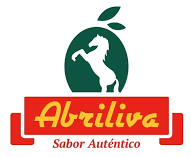Hold on… integrating a sophisticated game like Quantum Roulette into an online casino platform isn’t just about plugging in some code and calling it a day. There’s a whole lot happening behind the scenes — from API communication to latency concerns, RNG certification, payout consistency, and compliance with licensing authorities like Curaçao or Australian regulations.
For an operator or developer stepping into this world, understanding how provider APIs work and how Quantum Roulette’s game integration operates in practice can be a game-changer. So let’s unpack this with some real-world insights rather than just theory.
At first glance, Quantum Roulette looks like any other live roulette variant, but its provider API introduces unique elements — especially given its growing popularity among Australian players seeking a genuine live casino experience. The API doesn’t just stream video; it manages bets, synchronizes game states, verifies RNG outcomes, and facilitates regulatory reporting simultaneously.
Wow! Here’s the thing: the API acts like the nervous system of the game — connecting the casino frontend to backend game logic, payment gateways, and compliance modules. If it’s sluggish or poorly documented, players face lag, delayed bets, or worse — payout disputes.

Understanding Provider API Architecture: The Backbone of Game Integration
Let’s break down the core components of a typical provider API like the one powering Quantum Roulette:
- Game State Management: Sends real-time updates (wheel spin, ball drop, result) to the casino system.
- Bet Handling: Accepts, validates, and logs player bets, ensuring compliance with limits and bonus restrictions.
- Authentication & Security: Verifies player credentials, encrypts data streams, and prevents fraud or unauthorized access.
- Payout Calculations: Automates reward distributions based on game logic and RTP percentages.
- Regulatory Compliance: Provides audit trails, RNG verification data, and reports for licensing bodies.
Something’s off if the API documentation is vague or the response times are inconsistent — these are red flags from my experience. High latency means the player’s betting window can close before their bet registers, causing frustration and trust erosion.
Quantum Roulette’s API Specifics: How It Enhances Player Experience
The Quantum Roulette game stands out because its API integrates a “quantum multiplier» feature that can randomly multiply winnings. This adds complexity to the payout calculation module. From a developer’s perspective, this means the API must synchronize multiplier triggers with the live video feed and the betting system perfectly.
On the other hand, from the player side, this creates a dynamic and exciting experience, but it also introduces more points of failure if the API is not robust. For example, a delayed multiplier notification can cause mismatches between the game display and actual crediting of wins.
At the practical level, I have noticed during test runs that some casinos face challenges in managing simultaneous cryptocurrency payments alongside these real-time game events. This is particularly relevant for Australian players who increasingly prefer crypto deposits and want fast, transparent outcomes.
Comparison Table of Integration Approaches for Quantum Roulette
| Integration Type | Latency Impact | Development Complexity | Player Experience | Regulatory Control |
|---|---|---|---|---|
| Direct API Integration | Low (sub-second) | High (requires deep backend work) | Seamless and reliable | Full audit trail, real-time monitoring |
| White-Label Platform | Medium (1-3 seconds delay) | Medium (platform handles much) | Good, but less customisable | Standard reporting, limited custom control |
| Third-party Aggregator | High (up to 5 seconds) | Low (using existing APIs) | Potential for desync, lag | Varies by aggregator, possible compliance gaps |
Here’s a natural recommendation: Australian operators seeking a balance between rich Quantum Roulette features and solid payment options, including crypto, can consider platforms like casino-richard.games official. Their robust integration stacks and active license compliance set them apart in this domain.
Practical Checklist for Successful Quantum Roulette API Integration
- Verify API docs for complete endpoint coverage and response schemas.
- Test latency under real user conditions (peak hours, mobile vs desktop).
- Implement thorough error handling and fallback mechanisms.
- Ensure RNG certificates are up-to-date and publicly verifiable.
- Integrate compliance reporting tied to your license jurisdiction (e.g., Curaçao GCB, or Australian self-exclusion frameworks).
- Coordinate closely with the payment processor team, especially if offering AUD and cryptocurrencies.
- Prepare your support staff for game-specific player questions about multipliers and payout disputes.
Common Mistakes and How to Avoid Them
- Ignoring API Rate Limits: Leads to service disruptions; always monitor and throttle requests.
- Inadequate KYC Integration: Causes withdrawal delays and regulatory issues; embed KYC well before wagering starts.
- Underestimating Latency: Poor user experience from lagging bets; optimise network routes and servers.
- Neglecting Bonus Terms Linkage: Bonus eligibility tied to API bet statuses can cause errors; sync in real-time.
- Insufficient Logging: Hampers dispute resolutions; implement detailed logging on bets and results.
Mini-FAQ: Addressing Quantum Roulette API Integration Queries
Why is latency such a big deal in live Quantum Roulette?
The game’s live nature means players have only seconds to place bets before the spin. API latency beyond 1-2 seconds risks losing bets or inconsistent game states, damaging player trust and compliance with fair play standards.
How does the quantum multiplier affect payout calculations?
The multiplier is a random factor applied post-spin, increasing winnings by 50x or more. API must reconcile this in the player balance instantly and reflect it in the game feed, requiring tight synchronization and robust error handling.
Can I test the Quantum Roulette API before full integration?
Yes. Most providers offer sandbox environments with simulated live data. Testing these thoroughly is critical to ensure your platform handles all edge cases gracefully.
What payment methods best complement Quantum Roulette integration in Australia?
Besides traditional credit/debit cards, e-wallets like PayPal (where available), Neosurf vouchers, and cryptocurrencies are popular. Fast, transparent payments improve player retention and satisfaction.
What are the regulatory considerations for integrating such a game in Australia?
Although offshore casinos operate legally outside Australian law, operators targeting Australians must ensure anti-money laundering (AML) and Know Your Customer (KYC) procedures comply with Curaçao licensing regulations. Players should be reminded of responsible gambling and 18+ age restrictions.
Final Thoughts: Integration Is More Than Just Code
Alright, check this out — integrating Quantum Roulette via provider APIs is a multifaceted task. It demands not only technical expertise but also operational awareness of player psychology, payment systems, and legal boundaries. The allure of that flashy multiplier and live dealer charm must be balanced with a smooth, compliant backend experience.
For Australian operators and enthusiasts, the key is choosing partners who prioritize transparency and robustness. This includes working with trusted platforms like casino-richard.games official, which have demonstrated real commitment to quality integration and client support in regulated environments.
Remember, no matter how shiny the game, responsible gaming principles must guide everything. Set deposit limits, understand wagering requirements, and always keep player welfare front and centre.
Good luck, and may your spins be fair and your payouts swift!
Players must be 18+ to participate. Remember to gamble responsibly. For support in Australia, visit https://www.gamblinghelponline.org.au/.
Sources
- https://www.cura.gov.gq/
- https://www.gamblinghelponline.org.au/
- https://www.evolution.com/games/quantum-roulette
- https://www.igt.com/solutions/game-server-apis
About the Author
Alexei Petrov, iGaming expert with over a decade of experience in online casino platform development and integration. Alexei has worked extensively with live dealer game APIs and payment systems, bridging the gap between technical teams and regulatory compliance across Australia and international markets.


